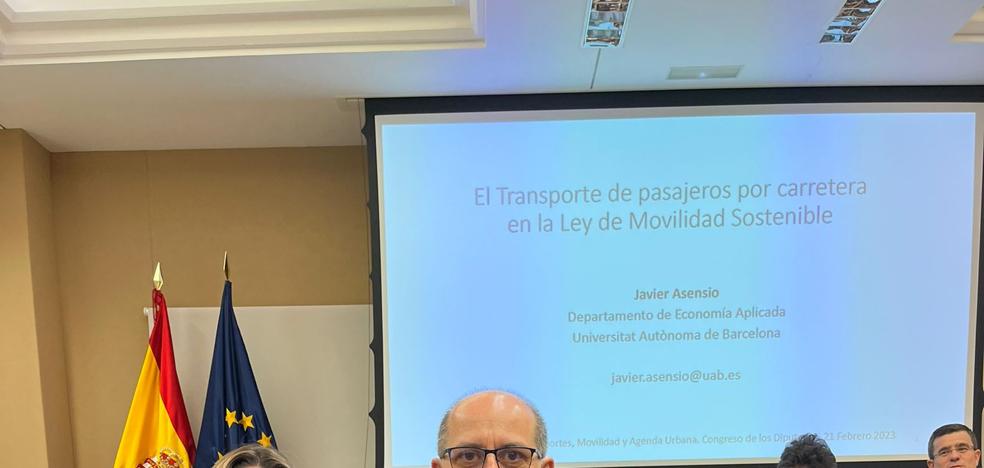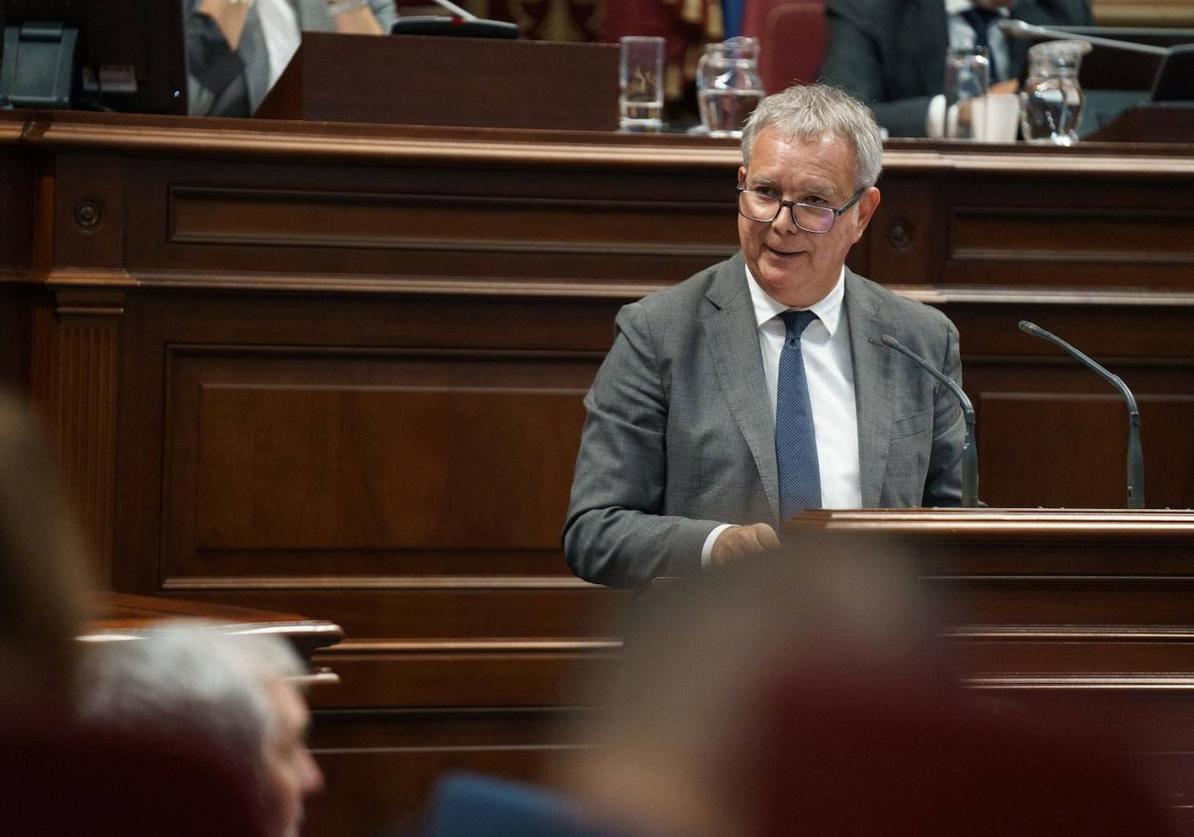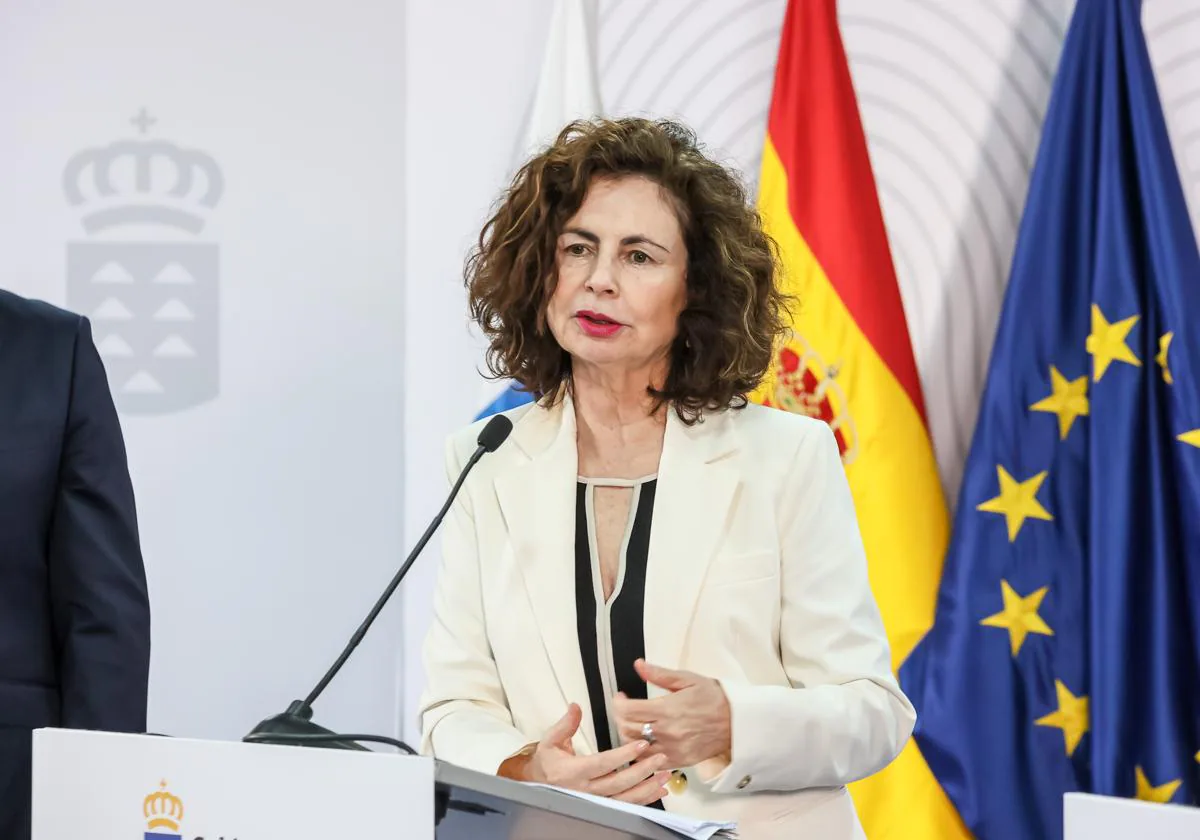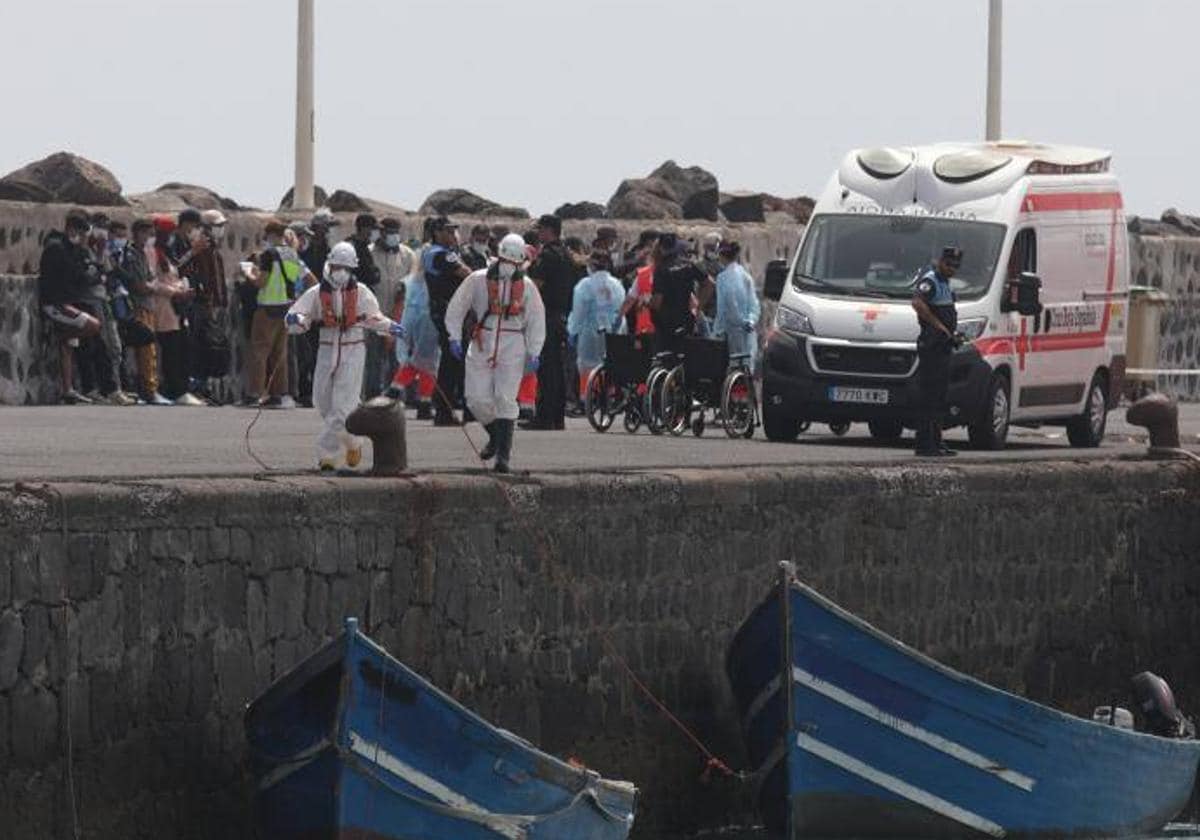The FET asks to adapt the sustainable mobility law to the singularity of the Canary Islands

José Ángel Hernández together with the CC deputies, María Fernández (i) and the PP, Ana Zurita, this Tuesday in Congress. /
The leader of the transport employers' association, José Ángel Hernández, demands in Congress that the current financing be tripled
The general secretary of the
Federation of Transport Entrepreneurs (FET) from the Canary Islands, José Ángel Hernández, defended this Tuesday in the Congress of Deputies the need for the bill to
sustainable mobility lawble pick up the
singularities of the archipelago and take into account the insular fact.
"Now it does not appear
no reference to the only ultra-peripheral region (RUP) that Spain has", Hernández pointed out before the Transport commission of the Lower House, where he appeared to provide his assessment of the project, "and it must be included, not only as
differential fact but so that what is included in this law can be applied, which is good but needs to have the lines of action recognized, “he added.
In this line, the leader of the transport employers' association recalled that the Canary Islands have specificities such as the
remoteness and double insularitywhich are decisive when designing mobility.
"Have
seven electrical systems fuel oil-based insulators, so the commitment to electric vehicles has a significant distortion that must be addressed by the Government so that the forecasts for electrification and the transition to hydrogen
may be viable in the archipelago," he said.
He also stressed that as they are islands there are
seven public transportation systems, which multiplies the extra effort in the fleet, workers and facilities. «To serve a population of 2.3 million inhabitants, there are more than
1,500 vehicles of public transport by road and amortizing the investment of the fleet is complicated", he indicated.
In his speech, Hernández also defended the recognition of the concept of
integrated island transportwhich is not taken into account in the current text of the bill, and requested the declaration of the transport of goods by road as a strategic public service, in addition to recognizing the particularities of the islands in adapting the
tachograph regulations. He was also in favor of maintaining the National Road Transport Commission as an independent body.
Refering to
resource endowmentHernández stressed that according to the calculations of the FET, with the implementation of the sustainable mobility law and the free policies that are already being applied "it would be necessary to
multiply by three the contributions to the public transport system in Spain, because it is not being enough.
He stressed that the difference between the state contribution and the real cost is being covered by local corporations, mainly by the councils in the Canary Islands, and pointed out that "it must be the reason for a
recalculate immediately».
In his opinion, the current text of the bill contains "powerful measures", but if they are not accompanied by a true
financial sheet that supports them will be reduced to a programmatic document.
In this regard, he urged that all the forecasts be applied with a financial project that at least outlines the basic lines that must be included in the
State's general budgets. As a starting point, Hernández proposed establishing the current framework of the public transport service in Spain and its cost, in order to implement the necessary improvements based on objective criteria.











